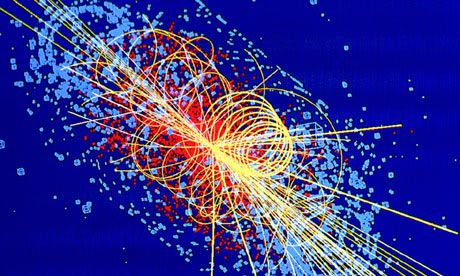
I don't mind missing out on a hot fudge sundae if I'm spending the time doing Tai Chi or playing my guitar or enjoying a good craft beer instead. How do you do a "risk analysis" on that basis?That''s not really the issue. He's trying to imply that he has other goods out of life so he doesn't need the stuff that comes with knowing God (which of course doesn't take seroiusly). My point was not that what one misses in not knowing God is not as trivial and missing a hot fudge sundae but that anything we risk is still a risk. So the wager is still risk taking analysis even if it's not risking being burned with fire for eternity.
I have an essay on Doxa: "Why I don't believe in Hell." In that I spell why I don't buy hell as eternal conscious torment. It strikes me as a childish concept that a God of love would undertake, to burn people with fire forever because they believe wrong, or even becuase they reject the good. That strikes me as not morally valid. It's so out of proportion. To back this up I studied the scriptures and come to the conclusion that it doesn't really teach eternal conscious torment. It uses eternal conscious torment as a metaphor that was meaningful in the day becuase it was a belief of the Jews, although not one in the Old Testament time, they took it from the Greeks in the interdepartmental period.
from Doxa:
specifically I believe that those who reject God and die in separation from God cease to exist. That is fair and humane since that's what they expect anyway. The atheist chooses to cease to exist but in disbelieving he expects this anyway. One must agree it is certainly more compassionate than eternal conscious torment.
The talk we find of flames and darkness is symbolic. It is symbolic of the dread of being judged and condemned, and symbolic of spiritual death. I believe the Bible teaches this and we can examine the passages and see for ourselves.
four reasons why I feel the Bible doesn't teach it, for fleshing out of these ideas read my essay linked above.
(1) hell was unknown to Hebrews of the first temple (the "Old Testament" times).
(2) Jesus only speaks of it either in parable or in symbolic or hyperbolic speech. He speaks of hell in the parable of the sheep and the goats, that's a parable. He speaks of it in the parable of Lazarus in hell but that's a parable. It's symbolic. He speaks of it where he says "if your eye offends you pluck it out." That's not a parable but since the eye plucking statement is clearly hyperbole then we can expect the conclusion "better to go into the king down with one eye than to be cast into hell whole" to also be hyperbole.
(3) the term used by Paul in statements like "the destruction of their souls" means complete and utter destruction. The word means to completely cease. It make much more sense to see that as ceasing to exist than to see it as eternal torment.
The Formation of Hell: Death and Retribution in the Ancient and Early Christian Worlds. - book reviews
Commonweal, May 5, 1995 by Carl L. Bankston, III
BNET Research
Although the Christian message was, from the beginning, concerned primarily with eternal life, the theme of eternal punishment emerged from apocalyptic Judaism in the pages of the New Testament. Bernstein's reading of the New Testament, however, indicates a diversity of understandings of this punishment among the authors of the Scriptures. Saint Paul, emphasizing the positive teachings of the faith, did not express a clear vision of hell and seems to have implied that the wicked would eventually simply disappear. The authors of the synoptic Gospels, by contrast, describe pains of eternal damnation that balance the joys of eternal salvation.
Then there is no expository exposition of hell in the Bible. There's no long detailed text that says clearly and non symbolically what hell is. I really urge reader to read my essay linked above. It's four pages it covers a lot more material.
The atheists have formed their hatred of God and their hatred of self and their reactions against religion around the notion of the injustice of eternal conscious torment. They can't relate to the idea of not being physically tortured for being wrong about beliefs. They don't seem to be able to get into their heads the idea of not being tortured for wrong belief. Most of them seem to feel that the idea of hell is to scare people into bleief, when they learn I don't believe in doing that they are mystified. "How do you make people be good?"
So Hermit rightly wants to know what is the upshot of not believing if the risk is not eternal conscious torment. What is the risk? Of course where he screws up is where he can't accept my answers but keeps picking and picking and picking in hopes of showing me up with some kid of contradiction. I suppose in a childish sort of way that's understandable.
When I suggest that these are the risks:
(1) miss eternal life; die in enmity with God we cease to exist. Nothing in humane about it becuase what atheists choose anyway, they chose the belief system that has this as it's end. they could just as easily hold out hope for an after life but they feel stick with the system that doesn't have one.
(2) Miss knowing God in this life. That is the greatest thing.The studies that I talk about which show the effects of religious experience (200 studies) and the studies on the effects of participation in belief (chruch attendance--300 studies) demonstrate that the effects make for the best possible life across the board in terms of physical and mental health and a well adjusted psyche.
(3) Personal fulfillment in meaning of life: the upshot of the transformation that comes with religious experience. This always includes a sense of knowing the meaning of life and one's purpose in life. This is attested to by thousands of mystics all over the world.
Of course Hermit throughs his own little notion, his anecdotal experience at it to deny the empirical. As one guy his own personal feelings outweigh all of these empirical studies.
Hermit:
You don't know the meaning of my life, so don't presume to tell me I'm missing it, or that I'm not fulfilling my potential; in fact I think I'm doing a much better job of that now that I ever did as a believer.I bet I have a pretty good clue. Why does he put it on a personal level? It's only anecdotal? Becuase he has no data. There is no actual counter data. This is all they can do. "Don't presume to tel me what I'm missing?" You did ask! So he totally takes the emphasis from risk taking analysis and Pascal's Wager to this little performance of personal insult and injury that atheists do so well. In between mocking and ridiculing religious people they are quite the drama queens exhibiting all kinds of personal pain over almost everything that Chrsitians say.
Of cousre he thinks he's doing better as a non believer than as a believer. Of cousre he would never allow us to call into question the nature of his former believer experience. We have to assume that he was up there with Moses as one of the strongest believers ever, but why should we? He's offering that as proof that there is no risk from not believing (and of course totally taking us off point from the original article). Hermit has the red herring tactic down to a gifted art form. It's the personal sense of insult and injury that does it. "what you believe is injuring me so deeply I'm so filled with a sense of insult that you would dare voice beliefs that are so insensitive to my world view."
what were we talking about now? something about Pascal? Can't remember because that's his purpose in being offended.
-
My life is not problem free, but I cope with those problems much better now.
And it's not about hating anything Joe, I don't know where you get that idea. It's about being the best person I can be, and part of that is simply being honest with myself about what I believe and don't believe. Where is the downside of that?
How am I to do a "global warming" style risk assessment when you can't even tell me what I'm risking? You haven't done anything except belittle my choices, misinterpret my motives and call me a liar. Not a very persuasive argument.
First he creates this red herring with his sens of insult, then moves the issue over into "how am I doing?" Then he claims since he is so happy he doesn't need God he doesn't need this stuff, so there's risk. What is the point here? Is it that he's not risking? is that the point I made about global warming? The point I made was that if you value global warming as a risk taking analysis then you can't dismiss Pascal's Wager the way atheists do becuase they both share the same assumptions as risk management. By reducing it to his own personal state of well being and his assurance on a person level (which he would never allow the believer to assert) he dismisses completely the original purpose and then announces that he has no use for it.
The first thing to keep in mind is that he has no sense of what this is doing at all. It has nothing to do with the original piece. Secondly, it's important to remember that he expects us to take his word for how good he's doing but it's anecdotal and he's only one guy. No way that can outweigh the mountain of empirical evidence we have that suggests something is being missed with unbelief so therefore there is a risk.
Moreover, there are two possibilities: (1) either he really does know God, he just knows God in a different way, or (2) he's lying and he's not happy, maybe his "happiness" is surface level but in that branch of the possibility we can just ignore it as anecdote. As for possibility one what is the basis for thinking he might really know God? I know from past discussion that he has an idea of love. He wants to love people, the believes in love as an all important ideal. 1 John tells u "he who loves knows God." Maybe, if we take him at his word, he does know God. He just packages his understanding in a different way becuase he rejects the religious package for God. I'm not saying that this is the case, it's a hypothetical. Everyone can't just assume they also qualify in this way. It makes more sense to seek an overt relationship with God. The studies about the effect of participation in religious belief suggest that some form of chruch going might be in order.
Remember Kierkegaard's story about the wig. (in Fear and Trembling) A man was assaulted by someone wearing a big red wig. The thug throws the wig away and it's picked up by a bum who is then arrested. In the trial the victim of assault identities the bum as the assailant. Then the real assailant get up in the audience and says "No you are wrong I assaulted you. It's the wig you regard not the man."
This is apt both in the possibility that Hermit fails to understand the true source of his felicity, and that he fails to understand the true source of mine.






 ) is "true". I support liberal politics because of my secular humanism.
) is "true". I support liberal politics because of my secular humanism. 